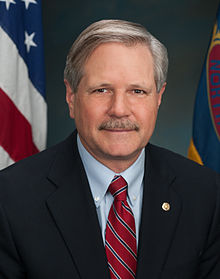Sen. John Hoeven (R-ND) discussed his plan for tax reform at a roundtable with local small businesses in North Dakota last week, outlining tax reform principles and gathering input from business leaders, including representatives from the local agriculture, retail, insurance, real estate, and manufacturing sectors.

“Small businesses are the backbone of our economy, and by reducing their tax burden we can create more jobs and opportunity for middle-class and working families while also letting workers keep more of their hard-earned money,” Hoeven said. “That’s why we’re working hard to pass tax relief by the end of the year. Today’s roundtable was all about getting input from our state’s small businesses on how tax relief can benefit our economy, not only through job creation but higher wages for our workers.”
The senator’s priorities on tax reform are to reduce compliance costs by simplifying the code, bringing down tax rates, and broadening the tax base to ensure stable revenues. This will increase government revenues over the long run, he said.
Specifically, Hoeven said supports a new lower tax rate and structure for small businesses that limits the maximum tax rate for small and family-owned businesses by 25 percent. The framework also allows to expense, or write off, the cost of new investments for at least five years. This will benefit small businesses.
North Dakota has nearly 71,000 small businesses that make up 95.8 percent of all employers in the state. For these small businesses, nearly 30,000 of whom are family farmers and ranchers, the marginal tax rate can reach as high as 44.6 percent – nearly twice the average rate of the rest of the industrialized world.
Last month at the Mandan Refinery in Bismarck, President Donald Trump delivered a speech that outlined the basic principles of the Administration’s tax plan. The first is the simplification of the tax code.
“Our tax code has gotten ridiculously complex. This complexity leads to massive frustration, wasted time, and wasted money,” Trump said.
Trump is also proposing the largest tax cut since President Ronald Reagan made possible through a combination of benefits, including “raising their standard deduction, increasing child tax credit, and lowering tax rates substantially.” The new tax plan will also cut the tax rate for businesses.
“Our tax code is a giant self-inflicted economic wound,” Trump said. “In the last ten years our economy has grown at an average of only two percent and some would say less than that. When I talk to the leaders of other countries… they’re unhappy about seven or eight points of growth of GDP.”